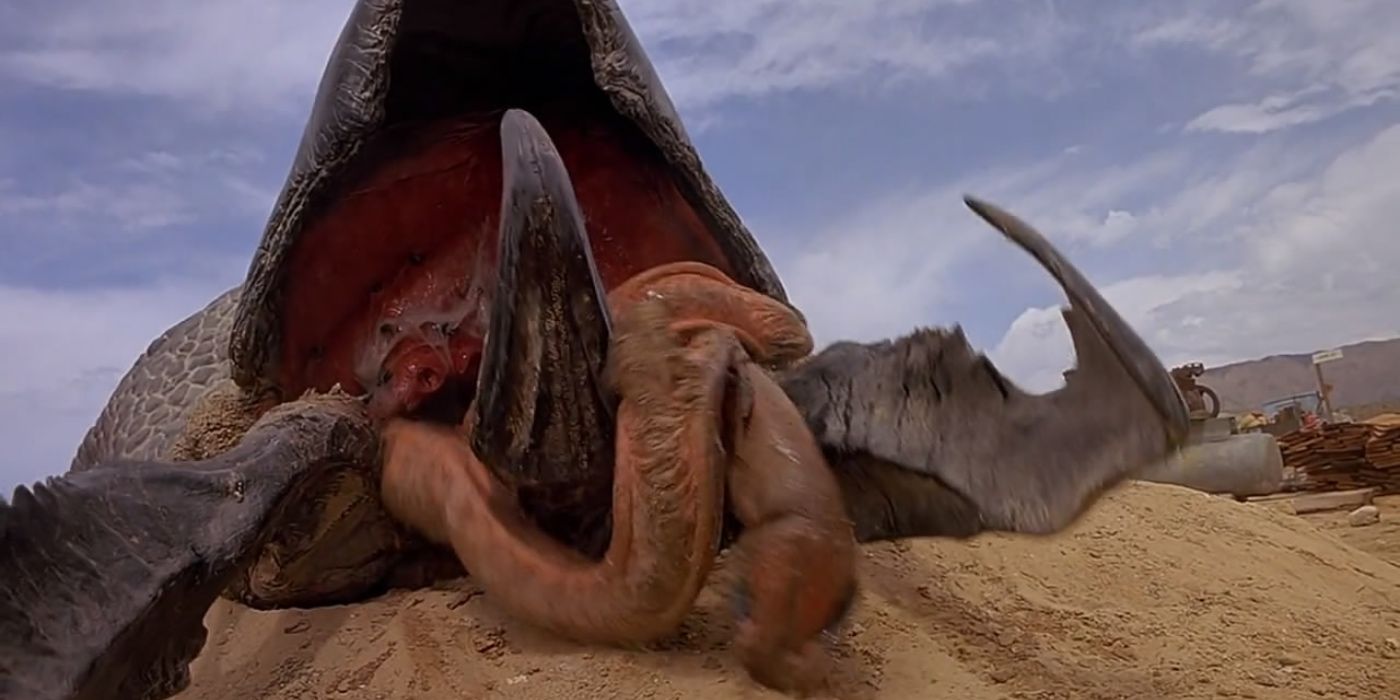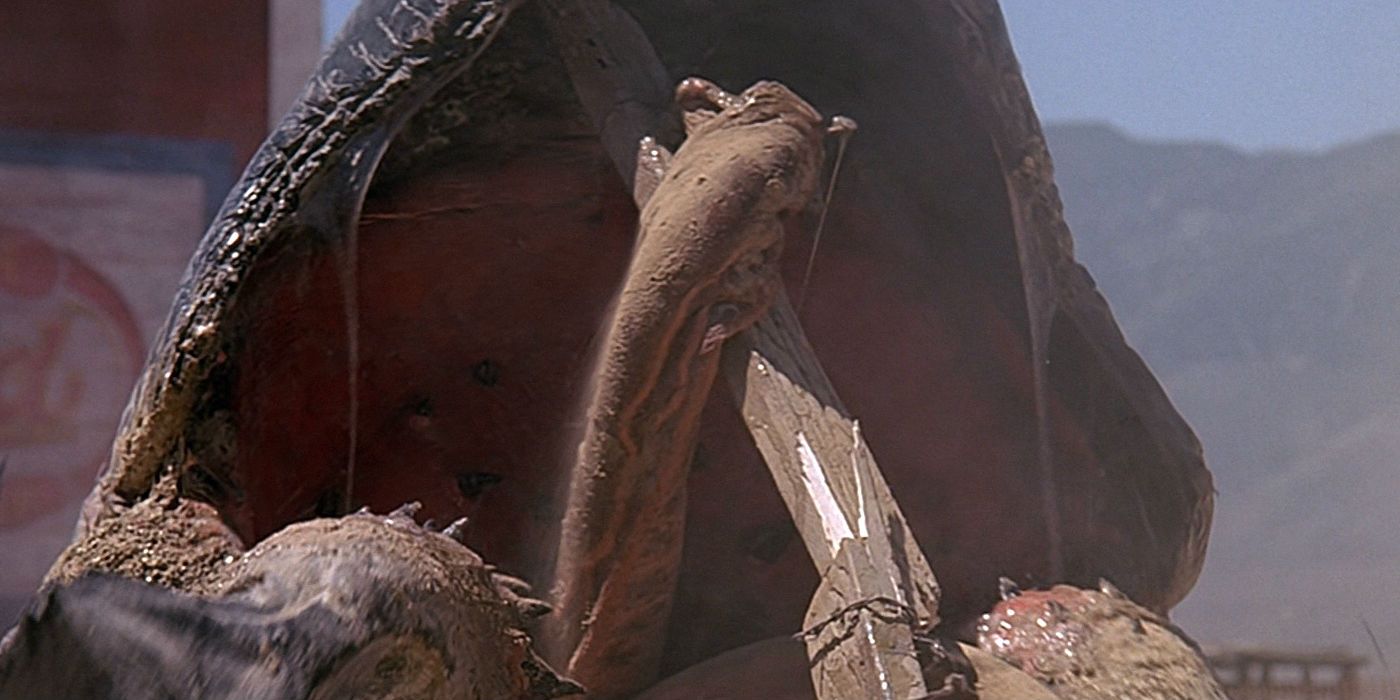
The Tremors franchise features giant underground worm-like creatures that love to snack on humans, and what exactly they are is itself fascinating. The horror genre has played host to dozens and dozens of memorable monsters over the history of cinema, but few are as unique as the creatures at the center of Tremors. The beasts are very hard to stop, and also very hard to see coming, as they attack from underneath, and can also move extremely fast, despite their massive size.
Tremors' large-tongued, giant-mouthed carnivores have menaced humans over the course of six films to date, with a seventh currently in production. While it's true that all but the original Tremors movie have gone direct to video, the franchise clearly has a strong fanbase, or Universal wouldn't keep making more and more sequels. Tremors has now been active in one form or another for nearly 30 years. There was almost even two simultaneous Tremors universes, at least until Syfy opted not to pick up a Tremors TV series starring Kevin Bacon.
The monsters in Tremors are unlike those found in any other horror movie, so we've opted to examine what they are, and how they work. After all, the best way to know one's enemy is to study its history and patterns.

To start, the monsters in Tremors are dubbed Graboids, and were mostly unknown to humans until the late 20th century. However, Tremors 4: The Legend Begins, a prequel to the other films, is set in 1889, establishing that humans had indeed tangled with Graboids, or at least their ancestors, long before Val McKee (Kevin Bacon) and the other residents of Perfection, Nevada came under siege. The standard Graboid type is the one pictured on this page, and is the only kind of Graboid to appear in all the Tremors movies.
However, the Tremors sequels introduced other stages of the Graboid life-cycle, which each behave in their own ways, and present their own threats. Graboids hatch from eggs, and begin as baby creatures called Dirt Dragons in Tremors 4. These grow into Graboids, which after the completion of their mission to consume mass quantities of food, kind of die, but a part of them lives on to become a Shrieker, which later evolves into the final Graboid stage, amusingly called the Ass Blaster. As one might imagine, Ass Blasters earn their name by blasting fire out of their butts and using it to rocket toward prey. They're also even more dangerous than the other Graboid types, which hunt by sound, since Ass Blasters can see heat signatures. Before death, the Ass Blaster lays a Graboid egg, and the life cycle starts anew. Graboids are truly fascinating creatures, but sadly, all the knowledge in the world probably won't save a person from their deadly assault.
from ScreenRant - Feed https://ift.tt/37aCjvW





No comments: